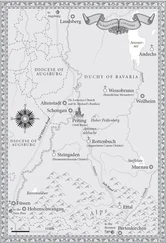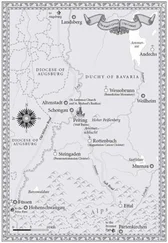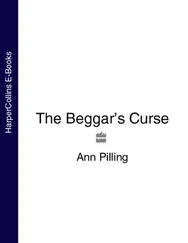Oliver Potzsch - The Beggar King
Здесь есть возможность читать онлайн «Oliver Potzsch - The Beggar King» весь текст электронной книги совершенно бесплатно (целиком полную версию без сокращений). В некоторых случаях можно слушать аудио, скачать через торрент в формате fb2 и присутствует краткое содержание. Жанр: Исторический детектив, на английском языке. Описание произведения, (предисловие) а так же отзывы посетителей доступны на портале библиотеки ЛибКат.
- Название:The Beggar King
- Автор:
- Жанр:
- Год:неизвестен
- ISBN:нет данных
- Рейтинг книги:5 / 5. Голосов: 1
-
Избранное:Добавить в избранное
- Отзывы:
-
Ваша оценка:
- 100
- 1
- 2
- 3
- 4
- 5
The Beggar King: краткое содержание, описание и аннотация
Предлагаем к чтению аннотацию, описание, краткое содержание или предисловие (зависит от того, что написал сам автор книги «The Beggar King»). Если вы не нашли необходимую информацию о книге — напишите в комментариях, мы постараемся отыскать её.
The Beggar King — читать онлайн бесплатно полную книгу (весь текст) целиком
Ниже представлен текст книги, разбитый по страницам. Система сохранения места последней прочитанной страницы, позволяет с удобством читать онлайн бесплатно книгу «The Beggar King», без необходимости каждый раз заново искать на чём Вы остановились. Поставьте закладку, и сможете в любой момент перейти на страницу, на которой закончили чтение.
Интервал:
Закладка:
O tender flow’r, beware!
As the men laughed, Philipp Lettner swung the leather cup around in the air. Once… twice… three times.
With a soft click, the dice fell into the sand.
1
IN THE DANUBE GORGE NEAR WELTENBURG, AUGUST 13, 1662 AD
TWENTY-FIVE YEARS LATER
The wave caught Jakob Kuisl head-on and swept him off the bench like driftwood.
The hangman reached frantically for a handhold as he felt himself slip across the raft boards, feet first, toward the gurgling, swirling river. Slowly yet inexorably, the weight of his body dragged him into the cold water. His fingernails scraped along the planks as he slid, and he could hear frantic shouts nearby, though they were muffled as if by a thick wall. He managed at last to grab hold of a carpenter’s nail jutting out of a plank and was hauling himself up just as someone came sliding past him toward the churning water. With his free hand, he lunged, seizing a boy by the collar. About ten years old, the boy thrashed about and gasped for air. The hangman pushed him back into the middle of the raft, where his relieved father grabbed the boy and hugged him.
Wheezing, Kuisl crept back to his seat in the bow. His linen shirt and leather cape clung to his body, and water streamed down his face, beard, and eyebrows. Looking downriver, he realized the worst was yet to come. The raft was drifting helplessly toward a towering rock wall over forty yards high. Here, in the Weltenburg Narrows, the Danube narrowed abruptly, transforming this part of the river into a roiling cauldron that had cost many a raftsman his life, especially in times of high water.
“My God, hold tight, hold on tight, for heaven’s sake!” The forward helmsman leaned on his rudder as the raft plunged headlong into another whirlpool. The tendons in his arms stood out like knotted roots, but the long pole in his hands didn’t budge. Heavy thunderstorms had caused the river to rise in the last few days so that the otherwise tranquil gravel banks along both shores had been swept away entirely. Branches and uprooted trees raced by in the white foam as the huge raft sped faster and faster toward the rock face. Next to him Kuisl heard the terrifying sound of the raft’s timbers scraping the limestone cliff that now loomed directly above, casting its shadow over the small group of passengers like a stone colossus. Sharp rocks cut deep into the port side of the raft, slicing through the outermost logs lengthwise like they were butter.
“Holy Saint Nepomuk, patron protector from the flood, be with us! Hail Mary, full of grace, help us in our distress! Blessed Saint Nicolas, spare us…”
Kuisl looked sullenly to one side, where a nun sat, clutching an ivory rosary and wailing incessant prayers into the clear blue sky. So, too, the other passengers sat on the wooden benches, crossing themselves and mumbling petitions, their faces white as chalk. A portly estate farmer awaited his certain demise with eyes shut tight and drops of sweat on his brow. A Franciscan monk appealed in a cracked falsetto to the Fourteen Holy Helpers, orphan saints who couldn’t have been much older than him when the Plague made martyrs of them. And the lad whom Kuisl had just saved from drowning now clung to his father and sobbed. It was only a matter of time before the rocks would rip these timbers apart and grind them to a pulp. Most of the passengers were unable to swim, but in such turbulent waters that wouldn’t have saved them anyway.
“Accursed water! Blast it!” Kuisl spat into the river and heaved himself toward the bow, where the helmsman still struggled to redirect a rudder fastened to the raft by rope. With legs spread, the Schongau hangman braced himself beside the raftsman and leaned into the pole with his powerful torso. It felt as if the rudder had snagged on something far below in the ice-cold water. Running through Kuisl’s head were the horror stories raftsmen told about malevolent, slimy monsters lurking at the bottom of the river. Just the day before, some fishermen had told him about a catfish five yards long that supposedly lived in a cave near the Danube Gorge. What in heaven’s name could be down there, holding fast to the rudder’s pole?
All of a sudden he could feel the rudder moving just the tiniest bit. He pushed harder, groaning, feeling that at any moment his bones might break. With a final grinding sound, the rudder came free. The raft spun out from the whirlpool and, with one last shudder, was catapulted away from the rock face.
Moments later they were shooting swift as an arrow toward two small rocky outcroppings on the right riverbank. Some of the travelers carried on screaming, but at this point the raftsman had gained control of his raft. They rushed past the foamsplashed rocks, plunging headfirst into the water until at last they’d made their way out of the dangerous gorge.
“Thank you very much!” The helmsman wiped the sweat and water from his eyes and reached out a callused hand to Kuisl. “The Long Wall might have had us for supper. Do you have any interest in rafting yourself?” He smirked at Kuisl, reaching out to feel the hangman’s biceps. “You’re as strong as two oxen, and you sure can curse like a natural-born. So, how about it?”
Kuisl shook his head. “Bless you for that, but you wouldn’t enjoy having me. One more whirlpool like that and I’d throw up right there in the water. Solid ground under my feet is what I need.”
The raftsman laughed, and Kuisl shook his wet, matted mop of hair so that droplets flew in all directions.
“How long before we get to Regensburg?” he asked the helmsman. “This river is driving me crazy. I’ve thought our time was up at least ten times now.”
Kuisl looked back at the rock walls that overshadowed the river on both sides. Some reminded him of stone beasts, and some of the heads of giants who stared down at this swarming mass of tiny mortals far below. Just a moment ago they had passed by the Weltenburg Monastery, now little more than a ruin consumed by war and high water. Despite its sad condition, many travelers on the Danube still stopped there to offer silent prayers. After a heavy rain, the narrow gorge below was considered a challenge for even the most experienced raftsmen. It certainly couldn’t do any harm to pause for a few Hail Marys beforehand.
“The Long Wall is, by God, the worst stretch along here,” the helmsman said, making the sign of the cross. “Especially when the water is high. But from here on out it’s a calm ride, I promise. We should get there in a few more hours.”
“I hope you’re right,” the hangman grunted, “or I’ll give you a good paddling with that damned rudder.”
Kuisl turned away and padded cautiously along the slippery narrow aisle between the rows of benches, toward the back of the raft where the cargo was stored. He hated traveling by raft, even if it was the fastest and still the safest way to get from one town to the next. The hangman preferred to feel the solid forest floor beneath his feet. Tree trunks were good for building houses and tables and even gallows, if you like, but they surely weren’t meant for this tumbling around, pitching, and tossing in raging river rapids. Kuisl would be happy when this was all over.
The travelers, who had meanwhile regained some color in their faces and were now praying or laughing loudly in relief, looked to Kuisl with gratitude. The father of the boy he’d saved tried to embrace him, but the hangman brushed him off and turned away grumpily, disappearing between the crates lashed down in the stern.
Here on the Danube, a four-day journey from Kuisl’s home, neither the passengers nor the crew knew that Kuisl was the Schongau executioner. For the helmsman up front that was fortunate; if it had gotten around that a hangman had lent him a hand, he probably would have been expelled from his guild. In some regions, Kuisl had heard, just touching, or even being looked at by, an executioner could strip a man of his honor.
Читать дальшеИнтервал:
Закладка:
Похожие книги на «The Beggar King»
Представляем Вашему вниманию похожие книги на «The Beggar King» списком для выбора. Мы отобрали схожую по названию и смыслу литературу в надежде предоставить читателям больше вариантов отыскать новые, интересные, ещё непрочитанные произведения.
Обсуждение, отзывы о книге «The Beggar King» и просто собственные мнения читателей. Оставьте ваши комментарии, напишите, что Вы думаете о произведении, его смысле или главных героях. Укажите что конкретно понравилось, а что нет, и почему Вы так считаете.












